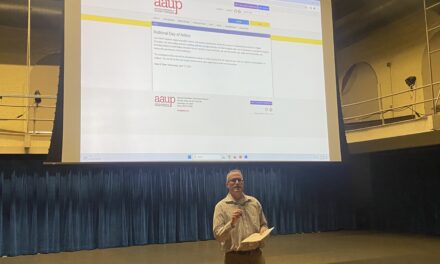The Student Programming Council (SPC) partnered up with Emory’s Office of Sustainability Initiatives for the first time ever this year to make the first three events of Dooley’s Week “zero waste” by ensuring that all items were either recyclable or compostable.
This year, at least 90 percent of the waste collected from Taste of Emory, Dooling Pianos and Trivia Night were diverged from the landfill. Selecting these three events specifically rather than ensuring “zero waste” at every Dooley’s Week event resulted from the fact that SPC wanted to keep the initiative simple given that this was a fairly new idea, said Emily Cumbie-Drake, sustainability coordinator.
This effort is part of the Emory Office of Sustainability’s original goal of diverting at least 65 percent of waste at Emory from the landfills by 2015.
Cumbie-Drake said that currently, Emory is at 35 percent of landfill divergence. She sought SPC’s partnership last year to collaborate in an effort to decrease landfill waste at Emory events.
“It’s great that they have gotten on board with trying to make their event more sustainable,” Cumbie-Drake said. “They are totally willing to work with us. Hopefully, this will be a good way to show other organizations that have big events that it’s not that difficult necessarily to make your events more sustainable.”
Meena Iyer, College junior and this year’s SPC Homecoming co-chair and a member of several other SPC committees, said she was excited to partake in this initiative. SPC wanted to also make Homecoming Ball “zero waste,” but SPC thought of the idea too close to the event.
“I think [zero waste] is such a great idea we can easily implement,” Iyer said. “Dooley’s Week co-chairs this year are essentially following up on conversations that we started last semester.”
Cumbie-Drake said she hopes to incorporate this “zero-waste” concept into other University events. No future plans, though, she said, are set in stone, but she intends to continue the partnership with SPC and use this relationship to reach out to other student groups, depending on the response she receives from students.
“I am curious,” Cumbie-Drake said. “I am really excited to see what will happen. I think that sometimes people get a little overwhelmed, and they think that recycling or composting can be a little daunting especially when there are a lot of people – kind of like Cox Hall in the middle of lunch time. People are overwhelmed, [and they end up] just putting it in the trash can.”
All three events had displays and volunteers near the composting and recycling bins to make the process less intimidating, Cumbie-Drake said.
The lack of trash cans at all the events, she added, further encouraged sustainability.
– By Shivangi Singh
The Emory Wheel was founded in 1919 and is currently the only independent, student-run newspaper of Emory University. The Wheel publishes weekly on Wednesdays during the academic year, except during University holidays and scheduled publication intermissions.
The Wheel is financially and editorially independent from the University. All of its content is generated by the Wheel’s more than 100 student staff members and contributing writers, and its printing costs are covered by profits from self-generated advertising sales.




